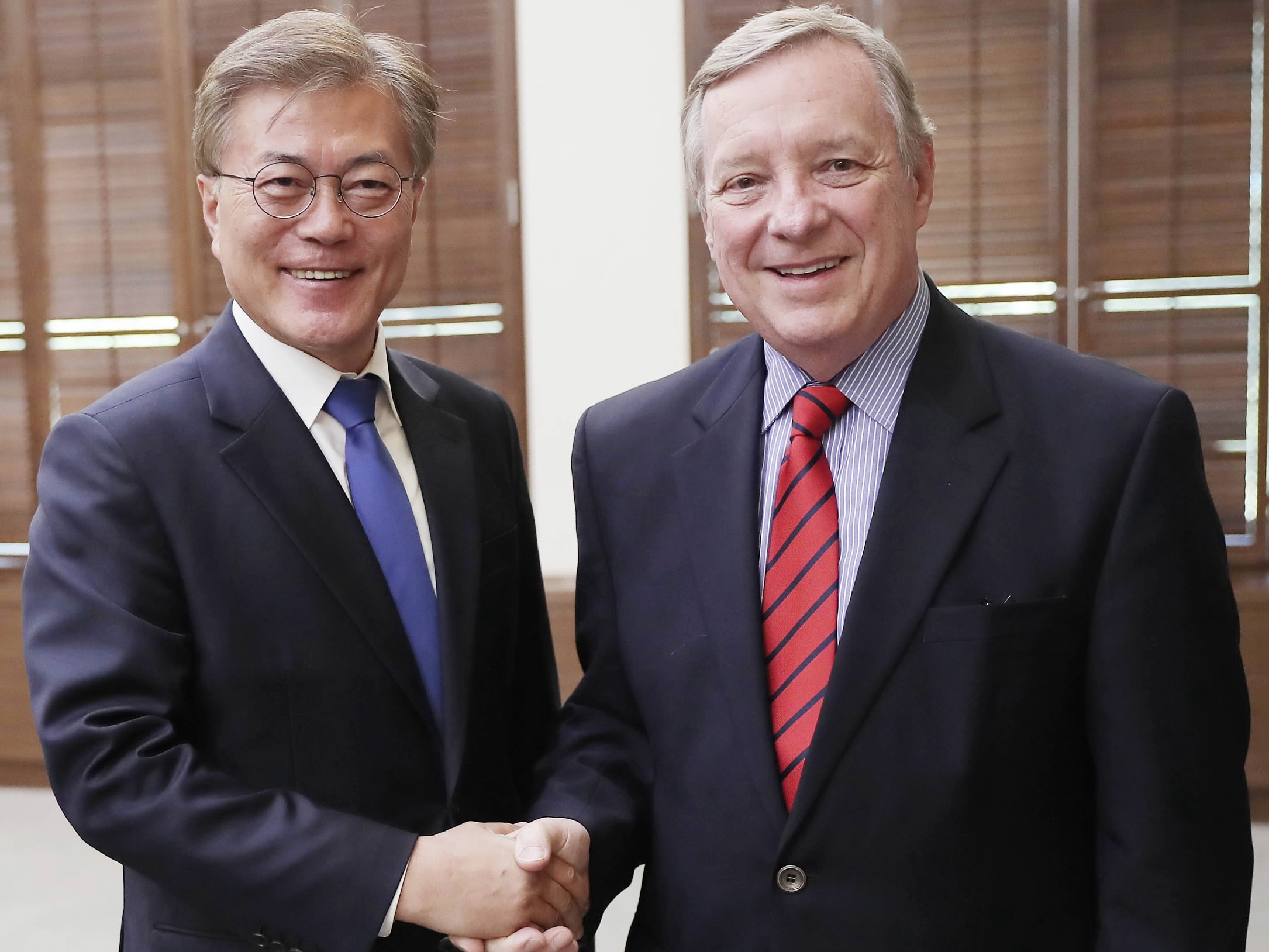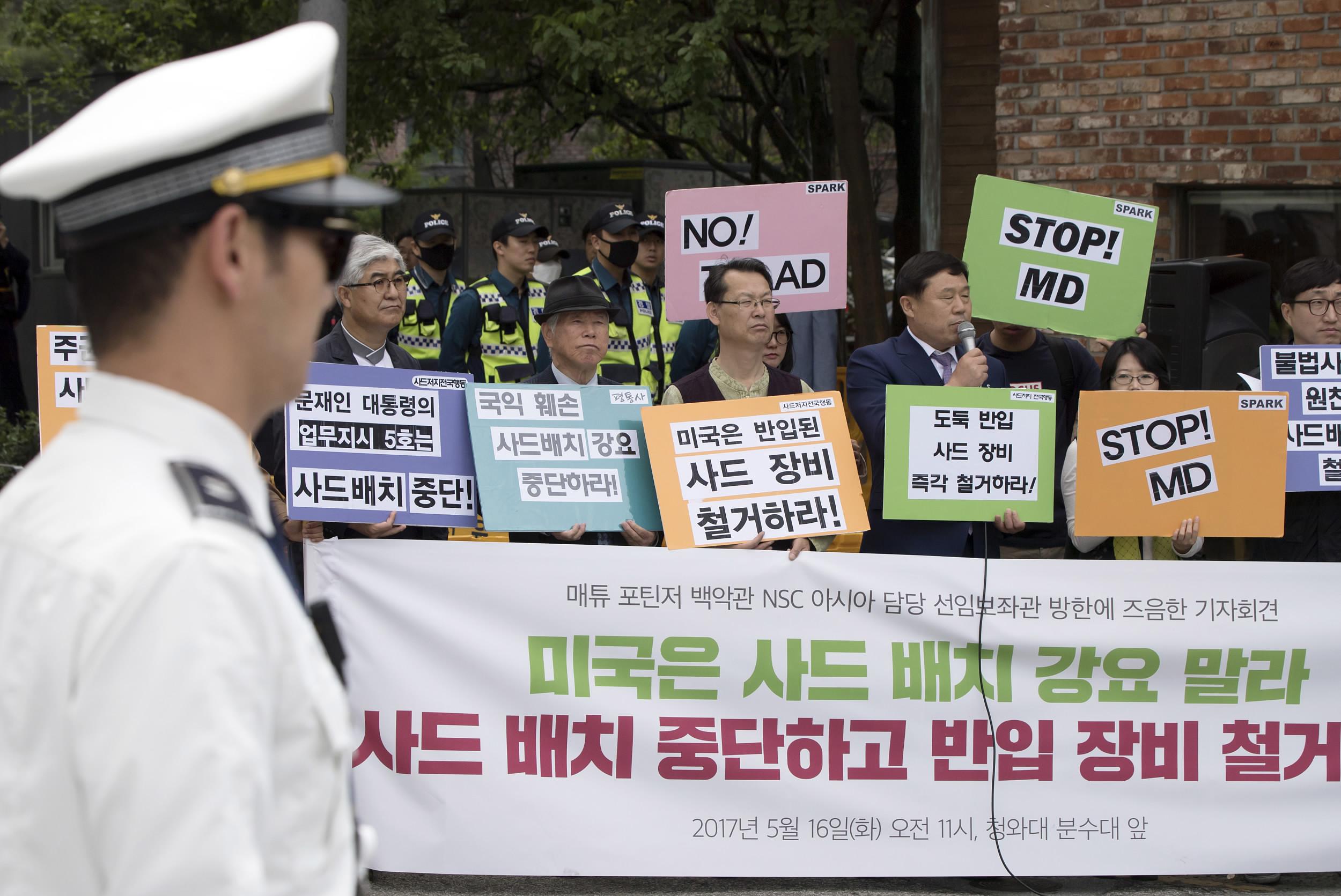China's Foreign Ministry voiced strong dissent over South Korea's ongoing plan of deployment of US Terminal High Altitude Area Defense (THAAD) missile system on Thursday amid a recent lukewarm relationship between China and South Korea in comparison to impeached Park Geun-hye's stance on the deployment.
South Korean President Moon Jae-in previously promised a cautious approach to the THAAD missile system. During the president's campaign for the May 9 presidential election, he called for a parliamentary review of the system.
Moon's special envoys even arrived in Beijing and Washington respectively earlier this week to explain the new government's policy stance on Korean Peninsula issues.

South Korean President Moon Jae-in and US Senator Dick Durbin on May 31, 2017. /CFP Photo
But Moon found himself surprised when his Defense Ministry failed to inform him that four more launchers for the anti-missile system had been brought into the country.
Presidential spokesman Yoon Young-chan said in a media briefing that the president found it "very shocking" to hear that four additional launchers had been installed without being reported to the new government or the public.
The startled Moon met with US Senator Dick Durbin on Thursday, who described the deployment as transparent. Durbin, who also serves as assistant Democratic leader and minority whip, said there is no secret on how it was moved forward, and "there was television coverage on the delivery of the THAAD missile system."

Anti-THAAD protesters in Seoul, South Korea, May 16, 2017. /CFP Photo
On April 26, part of THAAD elements, including two mobile launchers, radar and other equipment, were secretly transported to a golf course in Seongju County, North Gyeongsang Province, some 300 kilometers of southeast of Seoul.
China has been resolute on its position against the deployment, which Chinese Foreign Ministry spokesperson Hua Chunying urged to "immediately halt the deployment and withdraw the THAAD system" on Thursday.
Hua said the US deployment of THAAD in the ROK seriously undermines China's strategic security interests and disrupts the strategic balance in the region.
According to Hua, the THAAD deployment is not conducive to the goal of denuclearization of the Korean Peninsula and runs counter to efforts to solve the issue through dialogue and consultation.










